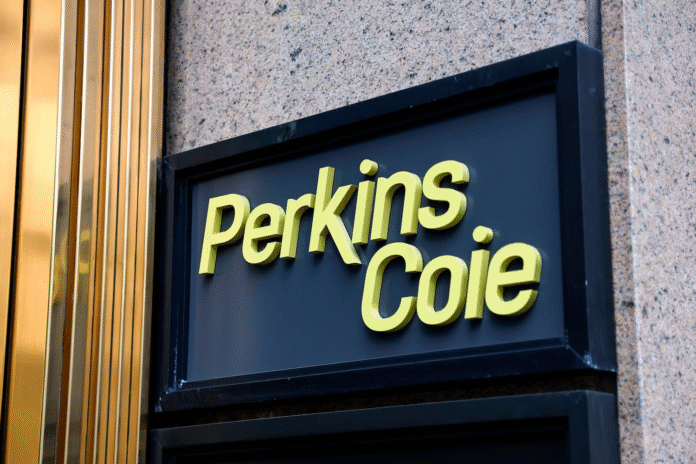
In a pointed and historic rebuke, U.S. District Judge Beryl Howell has issued a permanent injunction against former President Donald Trump’s executive order aimed at penalizing the high-profile law firm Perkins Coie. The ruling underscores mounting judicial resistance to what many see as a politicized effort to punish legal professionals for representing political adversaries—an act the judge decried as a violation of core democratic principles.
This decision marks a climactic moment in a legal standoff that has gained national attention. With firm language and an unflinching critique, Judge Howell portrayed the Trump administration’s executive order as a thinly veiled assault on the independence of the legal profession, warning of its dangerous implications for the rule of law.
An Order Rooted in Retaliation
At the center of the case is Executive Order 14230, signed by Trump earlier this year. The directive sought to revoke security clearances for lawyers employed by Perkins Coie, sever all government contracts with the firm, and effectively blacklist its attorneys from federal dealings. The move was widely interpreted as a retaliatory measure, citing Perkins Coie’s prior representation of Hillary Clinton’s 2016 campaign as justification.
By singling out the firm, Trump’s order sent a clear message: alignment with political opponents could carry severe professional consequences. Perkins Coie, along with civil liberties advocates, immediately challenged the order in court, calling it a targeted and unconstitutional abuse of executive power.
Judge Howell agreed.
Judicial Reproach: “Let’s Kill the Lawyers I Don’t Like”
In her ruling, Howell did not mince words. Drawing from Shakespeare’s famous line—”The first thing we do, let’s kill all the lawyers”—she criticized the order for being an overt political attack disguised as governance.
“In a cringe-worthy twist on the theatrical phrase,” Howell wrote, “EO 14230 takes the approach of ‘Let’s kill the lawyers I don’t like,’ sending the clear message: lawyers must stick to the party line, or else.”
She emphasized that never before had a U.S. president attempted such sweeping and direct punishment of a private law firm based solely on its clients and affiliations. To do so, she argued, undermines the very idea that lawyers should be free to represent individuals or organizations—even unpopular or controversial ones—without fear of government reprisal.
The Stakes for Legal Independence
Perkins Coie’s legal battle is not occurring in isolation. It is part of a broader pattern that emerged during Trump’s second term: a growing list of law firms finding themselves either in the administration’s crosshairs or seeking ways to stay out of them.
Trump has issued similar executive orders targeting four additional law firms, many of which had previously been linked to lawsuits, investigations, or causes unfriendly to his political brand. Meanwhile, at least nine other firms have quietly entered into arrangements with the White House—offering millions in pro bono legal work on conservative initiatives in what some view as a preemptive bid for protection.
Critics argue this dynamic undermines the principle of an impartial and independent legal profession. If law firms begin calibrating their practices based on political safety rather than client needs or ethical duty, the justice system itself is at risk of becoming a partisan tool.
A Rapid Legal Response
Friday’s ruling follows Judge Howell’s earlier decision in March to issue a temporary restraining order against the administration’s actions. At the time, she noted her concern that Trump’s order appeared to violate First Amendment protections and due process rights.
The April 23 hearing brought renewed scrutiny, as government lawyers attempted to defend the order’s legality. Howell, known for her sharp courtroom demeanor, again expressed skepticism—voicing doubts about the administration’s rationale and the potential precedent such executive action could set.
Trump, seemingly anticipating the unfavorable outcome, lashed out on social media, personally criticizing Judge Howell and questioning her assignment to the case—further fueling claims that the former president was attempting to undermine judicial independence.
A Pivotal Legal Moment
Legal scholars see Howell’s ruling as a watershed moment, reaffirming constitutional guardrails in an era of expanding executive power. While presidents have broad authority in shaping policy and directing the executive branch, they do not possess unchecked power to silence critics or punish political foes.
This ruling also reinforces the unique role of the judiciary in safeguarding civil liberties and ensuring that political disagreements don’t morph into institutional coercion. At its core, the decision is not just about a single law firm—it’s about the integrity of the legal system and the right of attorneys to do their work without fear of government vengeance.
What Lies Ahead
With the executive order permanently blocked, Perkins Coie is expected to resume its normal operations with federal clients and agencies. However, the broader legal and political battle is far from over. Similar cases are likely to make their way through the courts as Trump’s other orders come under scrutiny.
And for many in the legal community, the fight now includes defending the profession itself. As new legal and constitutional challenges unfold, the question looms: can America maintain a system where lawyers, regardless of who they represent, are free to uphold the law without becoming targets of it?
For now, Judge Howell’s ruling stands as a powerful reminder that the Constitution still holds sway—and that even the most powerful leaders must answer to it.


